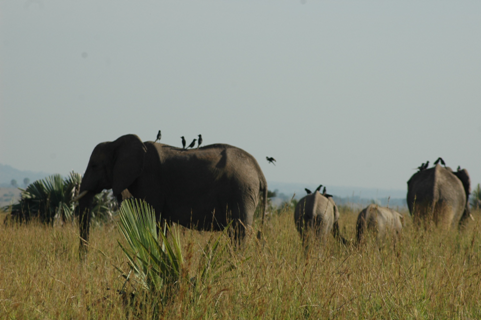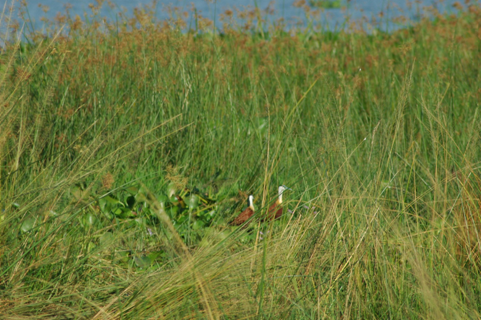
Presentations from International Union for Nature Conservation on gender considerations in REDD+ for policy makers and other actors in Uganda have been proposed. A second presentation has been given by Makerere University on a current study of gender specific aspects of climate change perceptions among community members in two districts of Uganda which are affected by erosion, Mbale district and the Kakasongola district of the cattle corridor as well as a transboundary one, i.e. the mountainous area of Kasese, at the border with DR Congo, downstream of the Rwenzori mountains and affected by floodings.

GWP EnA proposed to join the IUCN initiative on pro poor REDD+ projects as part of the current WACDEP regional project on building stakeholders capacities for climate resilience of countries and communities (strategic goal 2, outcome 4) to adaptation and mitigation in the Nile basin, after the first phase of a pilot site demonstration on the nexus between water, energy and food within the context of green growth, land and water management. GWP EnA proposed to expand the Makerere study on the perceptions in conflict sensitive areas of the North of the country for water security, and to inquire about the community awareness of climate mitigation for water and natural resources management in the Ramsar site of the Albertine rift lakes in Kasese district. The next step would be to disseminate and discuss the findings as well as the road map to a stakeholders workshop. Inclusive multistakeholder platforms is the first pillar of Integrated Water Resources Management (IWRM) that requires the facilitation of groups at national, sub national, and local governments level, NGOs, community organizations, private sector, academics, media and across the sectors of water management including agriculture, education, energy, environmental protection, health. IWRM principles can provide a unifying vision based on the second pillar, i.e. the basin approach, to be sensitive to the ecosystems.
In Uganda, a new initiative has been launched under IUCN’s pro-poor REDD+ project funded by the Danish International Development Agency – DANIDA. The initiative has already delivered on a draft road map that guides the design and implementation of gender sensitive REDD+ strategies, to be presented in Durban during COP 17 in December 2011. The stated objectives for the 2011-2013 readiness phase of the REDD+ draft road map are a) the establishment of a diverse and all inclusive gender and forest task force,b) a currently developed consultation and participation component of the design of the REDD+ national strategy based on the assessment of the barriers to women participation at local and national level and mapping of target groups, as well as c) a currently developed awareness strategy based on a gendered Information Education and Communication strategy, and d) conflict resolution aspects of REDD management issues, i.e. negative impacts of REDD+ on women rights and women rights to land, water and natural resources ownership to modify the REDD+ safeguards for Uganda, based on a dialogue and capacity building with traditional authorities and local governments institutions. Other objectives include gender sensitive baselines for the monitoring, reporting and verification system for REDD+, capacity-building for women organizations, gender mainstreaming in benefit sharing schemes of natural resources policies.
Makere University study provided the preliminary findings of a current study in the vicinity of Mount Elgon watershed, in the context of a scarce analysis on gender and climate change in
Uganda, including on the capacities for gendered climate change initiatives. The recommendations were first for capacity building on gender and climate change at national district and country levels at the policy makers, planners and NGO level as well as at the community level sot that they know how to integrate gender into national climate change planning for mitigation and adaptation to climate change and variability to ensure the linkages between safe and reliable water sources, planting trees, and women participation.
GWP EnA also proposed to link IUCN and Makerere University initiative with other combined IWRM and REDD+ initiatives in Eastern Africa, as part of a current GWP/Nile Basin Initiative/UNEP project on stakeholders participation for adaptation to climate induced water stress in the Nile Basin, which would be enriched by a mitigation aspect under GWP Water and Climate Development Programme (WACDEP).